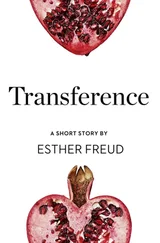He and Ellen had been lingering forever at the kitchen table. In the bright kitchen glare of one or two in the morning (neither of them had bothered to look at a clock for hours), he stared at her warily. She’d already crumpled every bill from the basket on top of the refrigerator and flung them at him. Eastern Edison, City of Brockton (water), City of Brockton (late property tax adjustment form), Bay State Gas (urgent reply requested), New England Telephone and Telegraph, Delta Visa, another Eastern Edison, Sears Automotive, another City of Brockton. He used to call himself a restorer of houses. One year he even told people he was a “preservationist.” He had loved his falling-down wrecks, his albatrosses, but he can’t do the work anymore. He blames it on his knees and his lower back, but it’s really this tiredness he’s got. Ellen asking, always asking, “My God, what’s wrong with you, man as big as you, look at the size of you.” And his wanting to explain, but not knowing how, repeating, “I don’t know, I don’t know, I don’t know.” This exhaustion that no amount of sleep or coffee could defeat. And like the clutch of houses he bought so many years ago, with the money that landed in his lap from the moon — an inheritance mailed from some lawyer’s office in New York City (when Ellen first said, “We can be landlords. We’ll never pay rent again!”) — he’s letting himself go slowly to ruin. Now he sits on rents. Now he won’t come to the phone when tenants call. Now he’s being sued. Now he’s being hailed before the Massachusetts Land Commission Review Board on property-neglect charges. It’s not the bills, Ellen once said, but that you think you can live without anybody noticing you. Even so — the overdue notices and the warnings were starting to kill her, and that night she was just about to open her mouth with more bad numbers when the old woman upstairs started pushing something across the floor. Ellen lifted her head and listened; then suddenly she spoke in her hushy curious voice, a voice he hadn’t heard in so long: “She’s blind, you know.”
“Who?”
Ellen pointed at the ceiling. “She told me the other day. She said she’d been going that way for years, and she might as well tell somebody it actually happened. No more sight. Just lights and darks.”
“The old bird? But she gets around fine. She’s got to be able to see something.”
“Memorized. Neighborhood’s all in her head. Potholes. The aisles down at the Peach.”
He looked up. “And all the redecorating?”
Ellen laughed and slid her cup toward him. Her cold coffee sloshed on the table. “I asked her finally. I figured if she was telling me things, why not? And you know what she said?”
“What?”
“She said if I don’t make my apartment an obstacle course, I’ll forget I can’t see.”
“Huh?”
“I have so many pictures in my head, she said, so so many pictures.”
He took her hand and rubbed her long, thin fingers. “How long?” he asked.
Ellen let herself look at him before she yanked her hand away.
A purple cardigan with suede elbow patches, the brown coat with the fake fur like that cat, a ragged pea coat (where the buttons used to be are now only tiny rock-hard balls of thread), a sequined dress for a much bigger woman, enclosed in plastic, a royal-blue windbreaker with yellowed lining and a union local logo on the back, skirts clipped to hangers by rusty safety pins, four moth-eaten men’s suits, all charcoal gray.
Ellen had grown tomatoes and a few cucumbers in the backyard garden. The tomatoes were the children she always insisted she didn’t want, refused to burden the world with — she’d measure the vines as they grew up their plastic ladders and record the heights in a notebook she kept in the drawer with the car keys and matches. They’d eat them in salads, and sometimes just them, like apples. Ellen would pack up the extras in a shoe box and carry them upstairs to her.
After Ellen left, he began hearing shrieks in the night. He thought of going up there and knocking and saying, Is everything okay up here? I heard something. Some yelling. I was concerned. Was it you? But he never did go to her, and after a while he stopped worrying, because in the morning, as usual, he’d listen to her slow clack down the stairs right on time, between 7:30 and 8:00, and she was the same as always out the window, small but not hunched, curly white hair that looped up from her shoulders like a girl’s. It got to be that he’d stare at the ceiling and wait for her. The nights she didn’t shriek were the worst: that old hooter sleeping peaceful, fending off whatever haunted her, and him, never more awake, listening for his own breathing.
Six-thirty on a Saturday evening in July and the St. Vincent De Paul’s on Calvert Street is closed. A sign says PLEASE NO DONATIONS AFTER HOURS, but someone’s already left an old computer in the seat of a baby stroller, a microwave with no door, a box of waterlogged encyclopedias, a set of Santa salt and pepper shakers, a steering wheel, a tacklebox, and a cabinet that looks like somebody shot the back out with a pellet gun. He sets the clothes in a heap on the sidewalk next to the stroller and hurries away.
Another of Ellen’s ideas that they’d both believed in for a while was expanding the garden and selling their tomatoes right out of the driveway. He’d even found a good cache of lumber in the basement of one of their houses and hauled it over in the truck. He was going to build a small stand; Ellen wanted it to look like a puppet theater. The old lady upstairs was going to tend the counter on weekdays, when they were both away working. And there won’t be any problems, Ellen said, because she’ll figure out what to charge by the dip of the scale.
When she didn’t come down in the morning and then again in the afternoon, he called the fire department and said, Something’s happened to my tenant. She lives upstairs. I’m at 817 Strossen. When the two paramedics moved slowly, but absolutely, up the walk with their shoulder bags and cases and defibrillator, he handed one of them the spare key. An hour and a half later, as he stood on the lawn with the neighbors, the quiet lights of the ambulance, the two police cars, the fire truck, streaking across the windows — much more commotion than she ever made in life — they brought her down. The paramedic, the one with the sandy hair and different-color mustache, the one he’d handed the key to, stopped to talk to him. The paramedic might have asked, If you thought something wasn’t right up there, why didn’t you go up there and check on her? But of course he was trained not to get involved in anything personal, and God knew, he’d seen a hell of a lot stranger things on calls. For now the paramedic needed only her full name and next of kin.
“Husband deceased?”
“Yes.”
“Children?”
“Not that I’m aware of.”
“So no grandchildren, cousins, sisters, anything like that? Anyone else?”
“Not to my knowledge.”
Sunday early morning he wakes to shrieking, and he isn’t surprised that it’s himself, that the hollering and carrying on is coming from his own throat. Rain pecks at the window one tap at a time, as if someone out there is trying to get his attention. He’s at the bottom of the bed, in a gnarled wrestle of sheets and blanket. A place he used to find himself after long dreams when he was a kid, dreams he never remembered. But now he remembers the moment before waking, and it’s a vision that sweeps his old fatigue away, even as he continues to scream at the walls of his own room: himself, kneeling on the sidewalk in the rain, weeping over those clothes.
THEY BLAME each other silently, and they’ve lived like this for years. Nearly a decade of silent eyeing. Here they sit at Papa Gino’s on a Friday night in December, across from each other at a tiny plastic table, so close their knees touch. Neither laughs as the other wrestles drooping cheese.
Читать дальше












